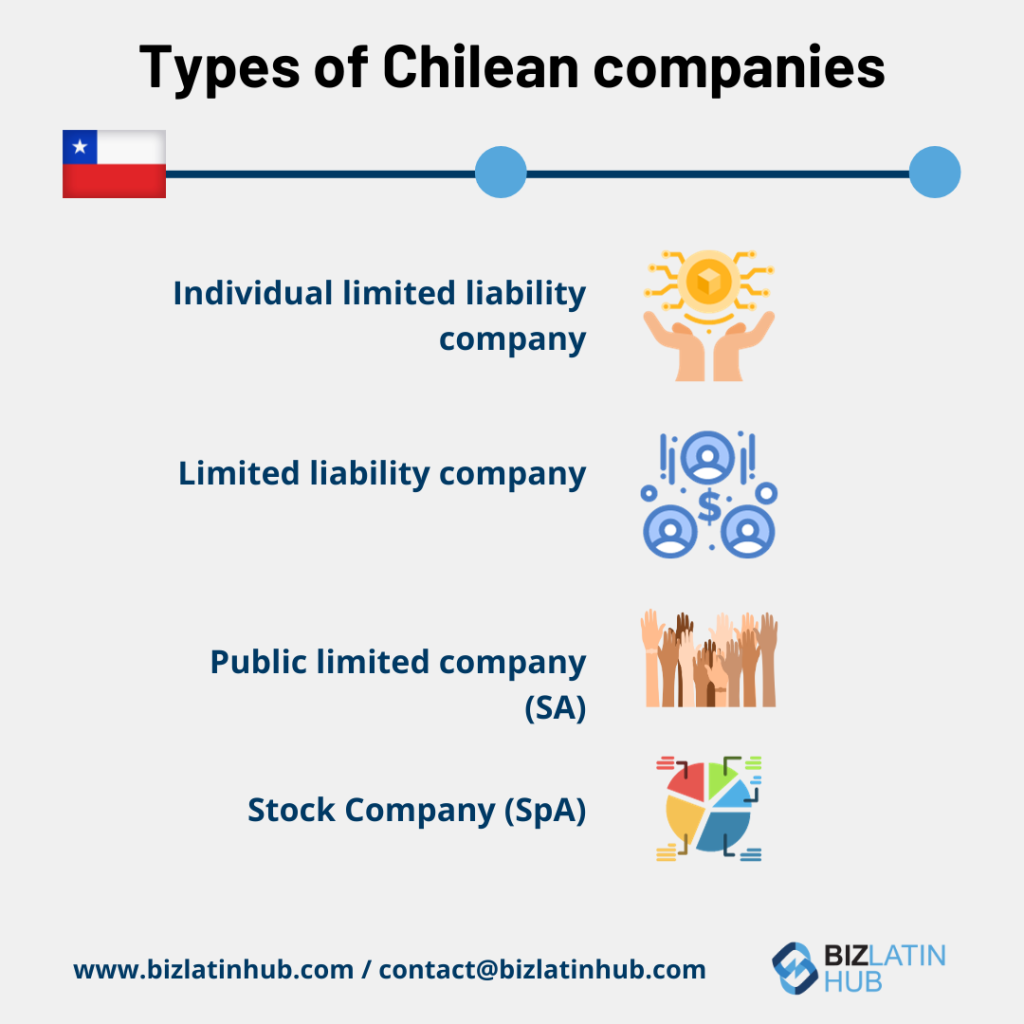Changes to Chile’s transfer pricing rules have brought the country into line with stringent international norms to offer greater guarantees to companies operating in one of the most open, competitive, and transparent economies in Latin America. That’s why so many investors are considering setting up a company in Chile.
That approach to Chile’s transfer pricing, in combination with favorable international taxes, as well decades of consistent improvement in economic markers such as gross domestic product (GDP) per capita, has seen the South American nation become a prime investment destination in the region.
For anyone working with an organization that has multiple entities either in the country or around the region, it is important to understand how the changes to Chile’s transfer pricing rules might affect your business. Biz Latin Hub can help you with this, or any other tax queries you may have in the country. We have experienced professionals in Santiago de Chile that can guide you easily through the system.
A regional investment beacon

Chile’s economic development over recent decades has converted the South American nation into a beacon for foreign direct investment (FDI) in the region, with mining and energy particularly prominent among a diverse range of sectors attracting investment.
In keeping with its commitment to commercial competitiveness and attracting FDI, Chile has made a significant effort to boost investor trust by adopting international norms related to trade and business, and seeking to align itself with supranational entities such as the Organisation for Economic Co-operation and Development (OECD) — as the recent transfer pricing changes were intended to do.
The country also oversees a reformist agenda intended to boost its efforts to draw investment, with regular modifications to its legislation to maintain the economy’s competitiveness.
Chile’s transfer pricing
Chile’s transfer pricing rules are relatively straightforward, with the meeting of set transfer pricing thresholds obligating companies to file affidavits with local tax authorities.
All transfer pricing must be in keeping with the “arm’s length principle” employed by Chile, meaning that despite two entities being related, any exchange of goods or services between them should be carried on an equal footing that can hold up to legal scrutiny.
Essentially, that means no entity should gain a commercial or tax advantage by dealing with another entity under the same overall ownership. Such an approach is adopted to prevent the skewing or disruption of markets, and to preserve competitiveness in the economy.

New rules enforced under Resolution Nº 101 state that there is now a need to file (2) annual sworn informative transfer pricing affidavits for certain companies:
- Master File affidavit. (Archivo Maestro)
- Local File affidavit. (Archivo Local)
The following companies need to file the Master File affidavit:
- The parent Company or Controller Company (over a Group of Related Entities), which has a residence in Chile if the Income of the Group exceeds $750.000 Euros
- All companies that belong to a Group of Related Entities, have Chilean residence, and that has been designated by the Foreign Parent Company to file on its behalf the Pais por Pais affidavit
The following companies need to file the Local File affidavit:
- Companies that belong to the segments labeled Big Companies (Grandes Empresas) in compliance with the criteria set forth by local tax authorities
- Companies whose Parent or Controller Company has filed a País por País affidavit before foreign tax authorities
- Companies who in the present year have transacted one or more times with related parties that do not have a Chilean domicile in amounts exceeding CLP$200m.
These changes align Chile’s transfer pricing rules with OECD stipulations, ensuring higher levels of transparency and efficiency when operating with related foreign parties.
Because while it represents some more administrative duties from businesses operating in the country, these changes reinforce Chile’s good standing in the international business and trade community and provide investors with even more peace of mind regarding entering the market.

FAQs on Chile’s transfer pricing
The main purpose of transfer pricing is to facilitate the proper calculation of costs for goods and services involved in any kind of transfer of assets and services between two related entities, where at least one person or entity involved in the transaction is legally resident in the country where the transfer pricing is taking place.
New rules enforced this year under Resolution Nº 101 state that there is now a need to file (2) annual sworn informative transfer pricing affidavits for certain companies:
Master File affidavit. (Archivo Maestro)
Local File affidavit. (Archivo Local)
The following companies need to file the Master File affidavit:
The parent Company or Controller Company (over a Group of Related Entities), which has a residence in Chile if the Income of the Group exceeds $750.000 Euros
All companies that belong to a Group of Related Entities, have Chilean residence, and that has been designated by the Foreign Parent Company to file on its behalf the “Pais por Pais” affidavit
The following companies need to file the Local File affidavit:
Companies that belong to the segments labeled “Big Companies” (“Grandes Empresas” in compliance with the criteria set forth by local tax authorities
Companies whose Parent or Controller Company has filed a “País por País” affidavit before foreign tax authorities
Companies who in the present year have transacted one or more times with related parties that do not have a Chilean domicile in amounts exceeding CLP$200m.
While it represents some more administrative duties from businesses operating in the country, these changes reinforce Chile’s good standing in the international business and trade community and provide investors with even more peace of mind regarding entering the market.
These changes align Chile’s transfer pricing rules with OECD stipulations, ensuring higher levels of transparency and efficiency when operating with related foreign parties.
All transfer pricing must be in keeping with the “arm’s length principle” employed by Chile, meaning that despite two entities being related, any exchange of goods or services between them should be carried on an equal footing that can hold up to legal scrutiny.
Understand Chile’s transfer pricing regulations with the help of Biz Latin Hub
Seek out a locally-based partner with experience in Chile’s transfer pricing regulations to help you enter the market or manage your commercial activities in Latin America’s most developed economy.
If you would like to learn more about transfer pricing in Chile or need tailored legal or accounting services to facilitate your operations in the South American country, engage with our multilingual team of legal experts at Biz Latin Hub.
Reach out to our team today to see how we can support you.
Learn more about our team and expert authors.






